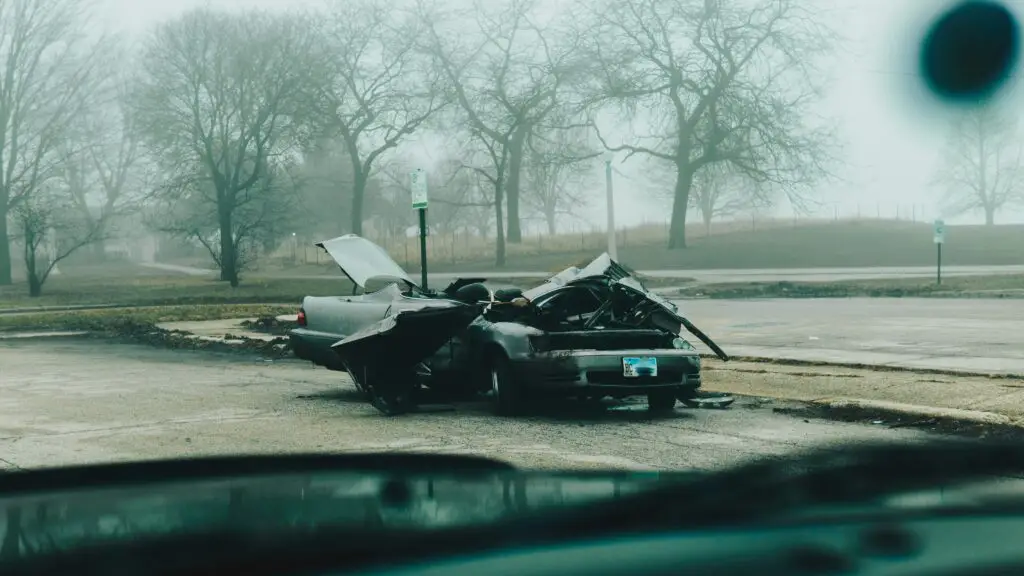Car accidents are becoming an increasing reality on our roadways. In 2022 alone, there were 1,664,598 car accidents, 42,514 of which resulted in fatalities. Luckily, most of these accidents result in little to no damage. Within these crashes, the intricacies of criminal vs civil law are commonly at play. Understanding the difference between the two can help clarify if there is a penalty for the accident and the severity of said penalty. Today, we will dissect criminal vs civil law concerning car accidents.
Former Rockstar In Fatal Car Accident
In a recent news release, ex-Red Hot Chili Peppers guitarist Josh Klinghoffer was recently behind the wheel during a crash that killed a pedestrian. The video shows Klinghoffer’s car driving up to a curved intersection. At the same time, a pedestrian begins walking along a crosswalk ahead of Klinghoffer’s vehicle.
The newscaster describes that Klinghoffer accidentally drove his car into the pedestrian, ultimately resulting in a fatality. The pedestrian’s family is reportedly suing Klinghoffer, claiming that distracted driving caused the “tragic accident” and that Klinghoffer could have easily prevented it.
Ugo Lord’s Analysis
In response to the video, TikTok attorney Ugo Lord has created a detailed response to explain the hidden details of criminal vs civil law in this situation. In his analysis, he first asserts that the video proves the driver is liable. The pedestrian walked far before the driver tried to pass through the crosswalk.
Car accidents involve an interplay of criminal and civil liability that determines the applicable punishments (if any). Most car accidents fall under civil law and do not lead to criminal charges, but some cases, especially those involving negligence, lead to criminal trials.
For that to happen, the driver would have to be guilty of some serious negligent behavior that led to the accident. For instance, if the driver had been under the influence or distracted on his phone, he could be criminally liable.
Criminal vs Civil Law

The differences between criminal and civil law may seem minute, but they often spell out the difference between minimal/no punishments, serious fines, and prison sentences.
Criminal charges apply to acts committed against a state or a nation. While they can involve individuals, they generally disrupt public peace and violate laws. Criminal charges are split into multiple classes: misdemeanors are a less severe category, often warranting small fines or other punishments. Felonies are more serious, often warranting court trials and jail time. Most jurisdictions split misdemeanors and felonies into further subclasses based on severity and punishment.
Civil charges are a blanket term for charges that don’t fall under criminal status. Most civil charges are disputes that occur between individuals or groups of people. Compared to criminal charges, which the city or state files, individuals file civil charges. Civil charges can cover a variety of disputes, such as contract disputes, property conflicts, family litigations, and tort law.
Similarities and Differences Between Criminal and Civil Law
As mentioned, criminal and civil cases often involve some court hearing. For both, this hearing takes on a similar process from start to finish. Like all court cases, both civil and criminal hearings require proof of some form of damage, whether minor or severe.
There are a few important differences between criminal and civil law. First, the government, either the city or state where the crime occurred, initiates criminal trials. In contrast, the government does not initiate civil cases and requires one of the involved parties to file.
Additionally, the burden of proof required for conviction differs between criminal and civil law cases. In criminal law, defendants are presumed innocent until proven guilty. A guilty verdict must be established beyond a “reasonable doubt,” meaning there is no reasonable possibility of innocence. In contrast, civil cases require only a “preponderance of evidence,” indicating that the evidence presented must be persuasive enough to suggest that the defendant is likely at fault.
Car Accidents: Are They Criminal or Civil?

Unsurprisingly, car accidents can fall under either criminal or civil law. In some cases, they may even fall under both. For example, if a driver under the influence crashes and damages someone’s personal property, both the city/state and the property owner can hold them liable. As described above, the process behind this liability under criminal vs civil law can differ, but it can also happen simultaneously!
In driving, most accidents fall under civil law because they often involve small wrecks caused by minor mistakes or oversights in driving technique. However, some minor wrecks can still warrant a civil suit. Examples of behavior that could lead to litigation in civil court include:
- Mildly negligent driving.
- Causing a personal injury with your vehicle.
- Inflicting a wrongful death with your vehicle.
- Causing property damage to your vehicle.
In severe cases, car accidents can fall under criminal law. Generally, serious negligent behavior or other criminal acts are responsible for bumping charges up to this level. Some examples of criminal behavior in car accident cases include:
- Reckless driving.
- Driving while intoxicated or driving under the influence of drugs/alcohol.
- Performing a hit and run.
- Vehicular manslaughter.
- Fleeing the police after causing an accident.
Luckily, most accidents are minor enough to cause minimal damage, thus resulting in small civil cases at worst. For most, these cases are efficiently litigated within the court system. Nevertheless, next time you get behind the wheel of a car, you may want to stop and think about the differences between criminal and civil law on the roads!

